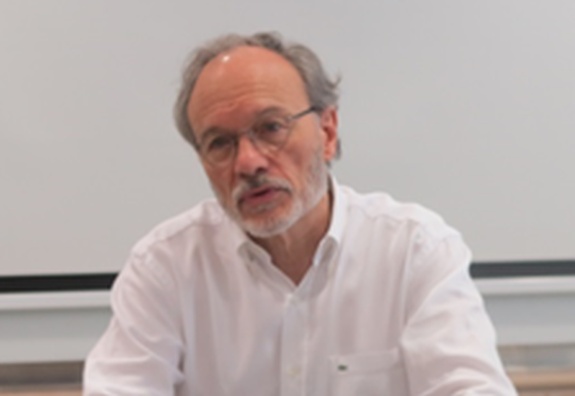Professional Talk by ESSEC Alumnus Mr. Jean-Luc Anglada
3.8.2015

ESSEC Alumnus Mr. Jean-Luc Anglada shared his experience and advice with students on 23 July, as part of a series of professional talks organized by Career Services at ESSEC Asia-Pacific. Mr. Anglada graduated from ESSEC in 1970, following which he left France to take up a position at Indosuez in New Caledonia. He has had 44 years of experience in banking, comprising 41 years of professional experience overseas, 26 years in Asia and 24 years in Singapore.
The Evolution of International Careers
Having experienced how times have changed since he began his career, Mr. Anglada spoke about the difference between international careers then and now. In the past, expatriation or an international career mostly meant hardship, moving from Western countries to other parts of the world, where expatriates frequently needed to move from place to place within short periods of time. International managers used to be a scarcity, and it was difficult to move from one company to another.
Today, the original country that international professionals come from is largely neutral, with professionals from all over the globe moving around to pursue international careers. Movements by expatriates or professionals pursuing an international career might not necessarily be initiated by companies, and people are constantly crossing frontiers, be it in terms of geographical or company borders. Professionals of today do not restrict their job searches to the companies originating from their home countries.
Crossing Cultural Borders
Mr. Anglada also spoke about how corporate cultures have progressively moved from a top-down approach towards a hybrid of a top-down and bottom-up approach, which brings a cross-fertilization of local cultures and imported cultures. The development of local talents has allowed companies to have fewer numbers of expatriates, which means that companies become increasingly localized as they expand their businesses overseas.
We are at a stage where the corporate world has started to tilt, with more international corporations moving from a western origin or head office to a more global approach. This brings with it the consequence of expatriates coming from all over the world. The management of companies on an international basis is changing, with many companies emerging from Asia and the Pacific branching out to Europe and the United States, often with their management positions located in Singapore and Hong Kong. To Mr. Anglada, the concept of a ‘centralized management’ will gradually fade away, in particular for emerging companies that are largely country neutral.
What do international professionals of today need to succeed?
Speaking about the capacities necessary for international professionals of today, Mr. Anglada highlighted that they need to have the adaptability to be able to change not only their working environment, but also their living environment, culture and language. He noted that specialists in a specific area can become very indispensable.
Mr. Anglada added that when a professional moves to a new company, both his or her attitude and aptitude will be considered. However, to him, attitude is much more important, as it gives the professional the capacity to work for a company in the long run, and the right attitude allows the employee to demonstrate that he/she wants, and can learn quickly, to understand the business and contribute to it. To Mr. Anglada, “Knowledge can be acquired throughout your life, but attitude will decide whether you will be able to stay long at a company.”
Addressing the topic of searching for a job, Mr. Anglada advised students to focus less on the origin of the company, and to look more at the business model as well as the perspective which the company can offer. It is important for students to do their due diligence to understand how the company has been run, its chances for success, its ambition, and whether it fits with what they are looking to pursue. He emphasized that students should not be obsessed with wanting to work in a specific country, limit themselves to a specific job or function, or be prejudiced against a corporation or profile. They should ensure that they can fit in the company, and also that the job fits them.
Mr. Anglada also highlighted that it is important to understand the profile of the company and tailor the resume or letters to different companies. Students should also explain their motivation to work in this particular industry or function. He encouraged students to be more inventive when searching for a job, to apply creativity in attracting the interest of the person who will read their resume, and to demonstrate that they understand what the company is doing.